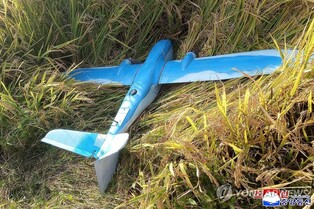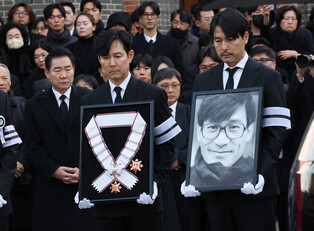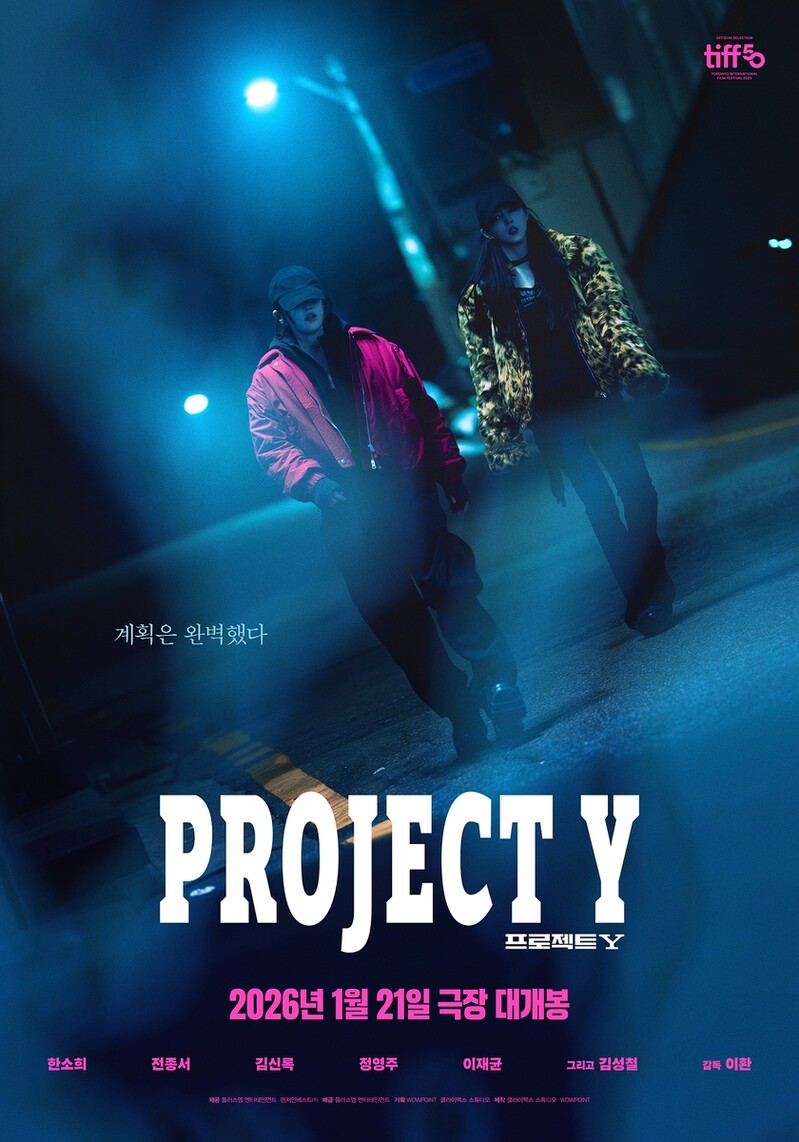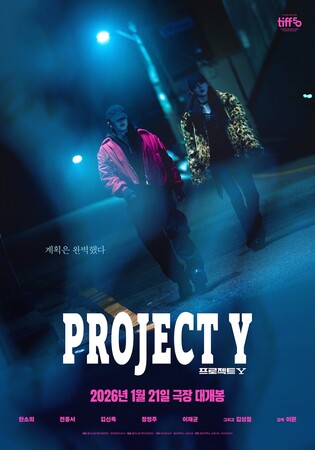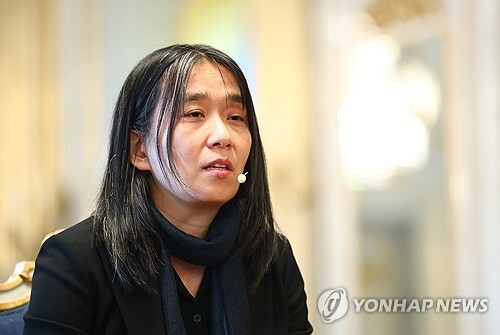 |
| ▲ Han Kang, the 2024 Nobel laureate in literature, speaks during a press conference at the Nobel Prize Museum in Stockholm on Dec. 6, 2024. (Yonhap) |
SEOUL, Dec. 7 (Yonhap) -- South Korean author Han Kang, this year's Nobel laureate in literature, expressed her shock Friday over the martial law turmoil in her native country.
"I am following the news in a state of shock," she said during a press conference held in Stockholm, Sweden, to commemorate her win.
"Like many South Koreans, I am deeply shocked over the last few days by the news of a martial law situation unfolding in 2024," she said.
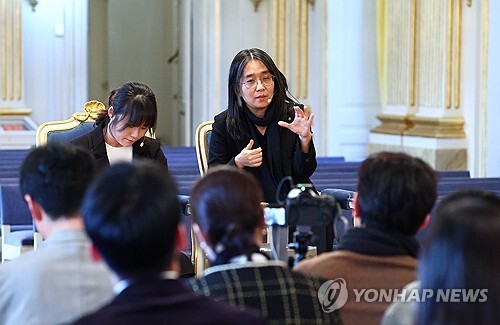 |
| ▲ South Korean author Han Kang speaks during a press conference at the Nobel Prize Museum in Stockholm on Dec. 6, 2024. (Yonhap) |
President Yoon Suk Yeol declared emergency martial law late Tuesday amid a political deadlock, throwing the nation into chaos. The crisis was swiftly resolved after the National Assembly voted to end the measure, with the Cabinet formally approving its repeal early Wednesday.
As a writer who has explored historical tragedies in modern Korean history, the recent political turmoil in Korea deeply resonated with her.
Sharing she had researched the martial law imposed by military dictator Chun Doo-hwan prior to the Gwangju uprising in 1980 for her 2014 novel "Human Acts," she said, "I sincerely hope we do not return to a time when voices are silenced through force or coercion."
The novel follows the story of a boy searching for his friend's body in the aftermath of the Gwangju uprising, while grappling with the harsh reality of a world where violence and beauty coexist.
The author said she noticed a stark difference between now and previous instances of martial law, stressing how everyone can now watch everything unfold in real time through livestreams.
"The scenes I witnessed were astonishing," she said. "There were people standing, trying to stop armored vehicles, and others with nothing but their bare hands attempting to hold back soldiers."
"I even saw people bidding farewell to the military as if they were their own children," she added, referring to the troops withdrawing after the National Assembly voted to lift the measure.
Han described literature as the act of exploring the inner worlds of others while simultaneously delving into one's own inner self.
Repeatedly engaging in this process helps cultivate "inner power," she said. "When we have this power, we are able to make a judgment and decide what to do in certain situations that we have not foreseen."
In October, the Swedish Academy announced Han as this year's laureate, recognizing the 53-year-old "for her intense poetic prose that confronts historical traumas and exposes the fragility of human life."
"In her oeuvre, Han Kang confronts historical traumas and in each of her works exposes the fragility of human life," the Nobel Committee said. "She has a unique awareness of the connections between body and soul, the living and the dead, and in a poetic and experimental style, has become an innovator in contemporary prose."
Han is the first Asian female winner in literature and the second South Korean Nobel laureate after former President Kim Dae-jung, who was awarded the peace prize in 2000.
(C) Yonhap News Agency. All Rights Reserved

















